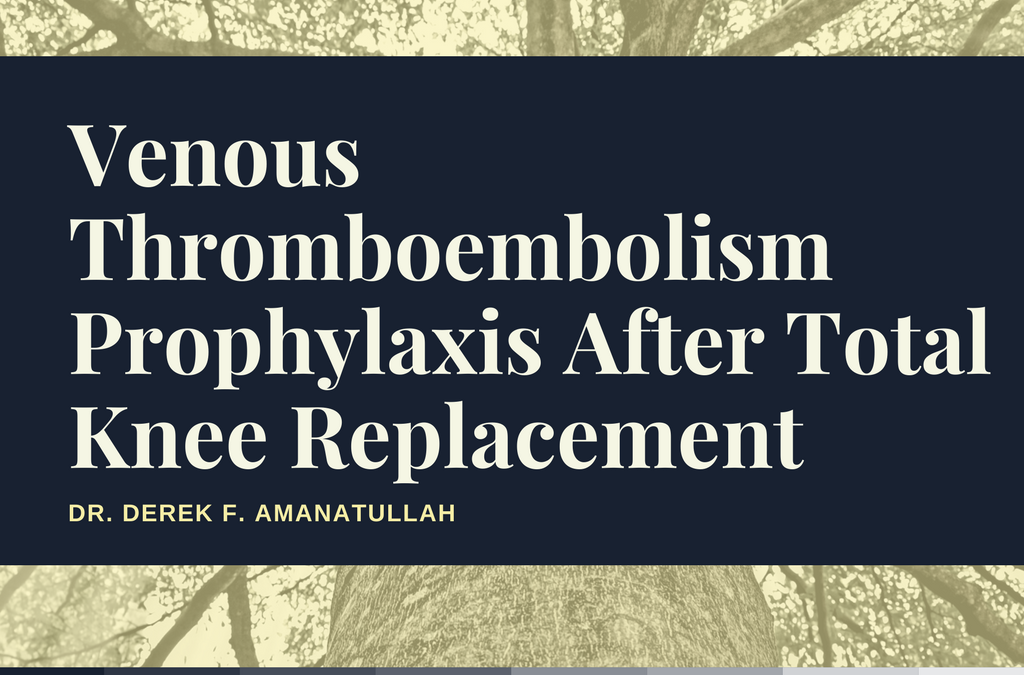After a joint replacement, a patient can develop a blood clot in the operative extremity, known as a deep venous thrombosis or DVT. Rarely, that blood clot can break off, travel to the lungs, and cause pulmonary symptoms ranging from shortness of breath to sudden death, know as a pulmonary embolus or PE. This phenomenon collectively known as venous thromboembolism or VTE.
Joint replacement surgeons are always looking for the best medications to proactively and effectively guard against VTE without increasing the risk of bleeding after a major surgery. None of the studies to date had been able to provide a definitive answer as to which treatment is optimal, and most studies omit one or more of the most commonly administered medications, including aspirin, warfarin, enoxaparin, or factor Xa inhibitors.
Dr. Derek Amanatullah and his team of researchers answered three major questions about VTE: what are the differences in VTE on each medication after knee replacement, what are the differences in bleeding risk on each medication after knee replacement, and how has use of each medication changed over time? Using the Humana and Medicare database spanning from 2007 to the first quarter of 2016, patients were divided into groups based on the form of antiplatelet or anticoagulant medication prescribed at the time of their knee replacement surgery. The incidence of DVT, PE, bleeding, anemia, and transfusion after knee replacement surgery were calculated.
The analysis revealed that aspirin and factor Xa inhibitors lead to the lowest rate of DVT as well as PE, and their use has grown the most over the studied time period. Aspirin had the lowest rate of bleeding and blood transfusion after a knee replacement.
To read the full text, click here.


